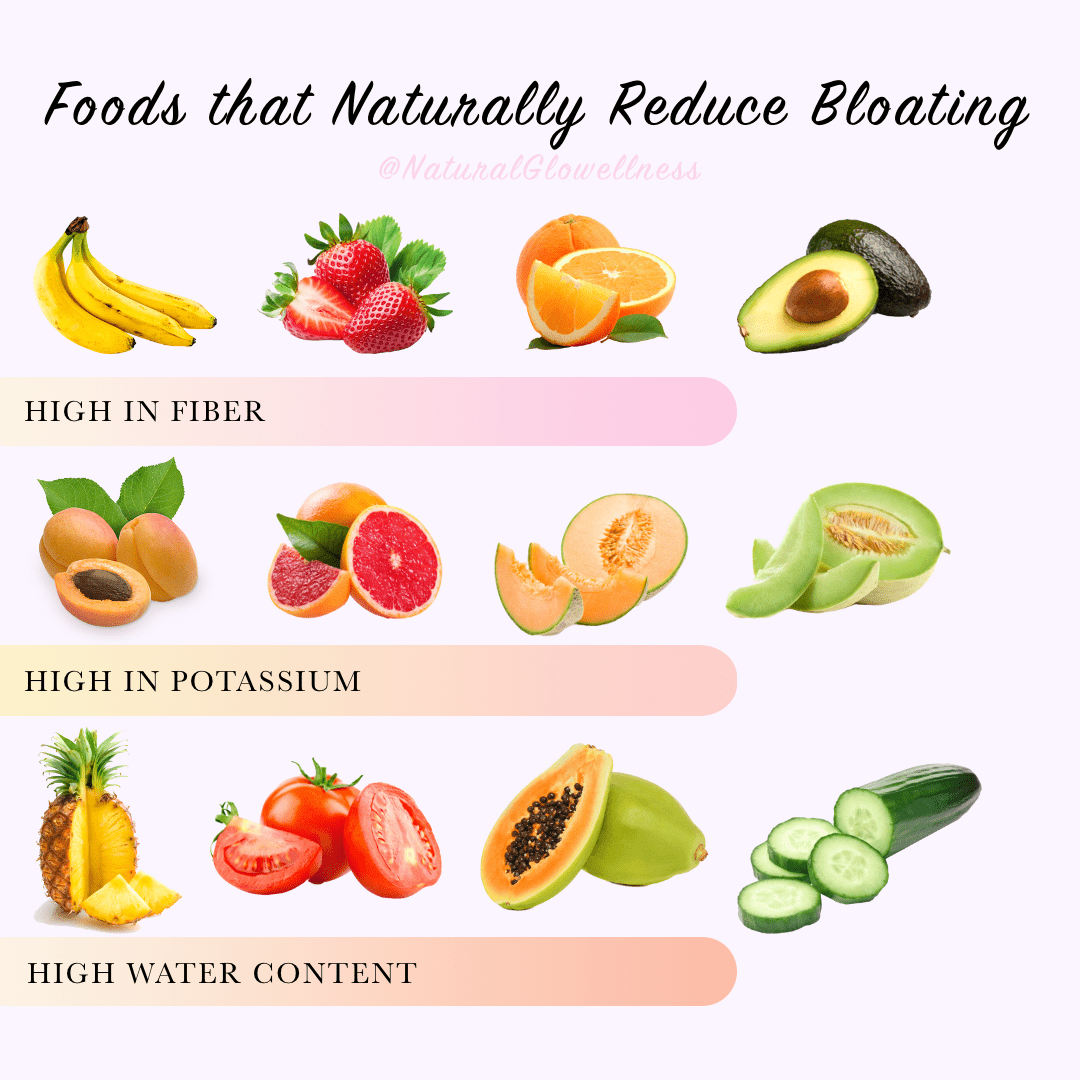Imagine biting into a juicy, ripe pear, only to be met with a sudden discomfort in your belly. If you’ve ever experienced bloating or gas after enjoying a delicious piece of fruit, you may be wondering if there are specific fruits that trigger these unwelcome digestive reactions. Fortunately, this article will shed light on whether certain fruits can indeed cause bloating or gas, helping you navigate your fruit choices with confidence and ease. Whether you’re a fruit lover or just curious about the potential side effects, read on to discover the truth behind this common concern.
Fruits That Cause Bloating or Gas
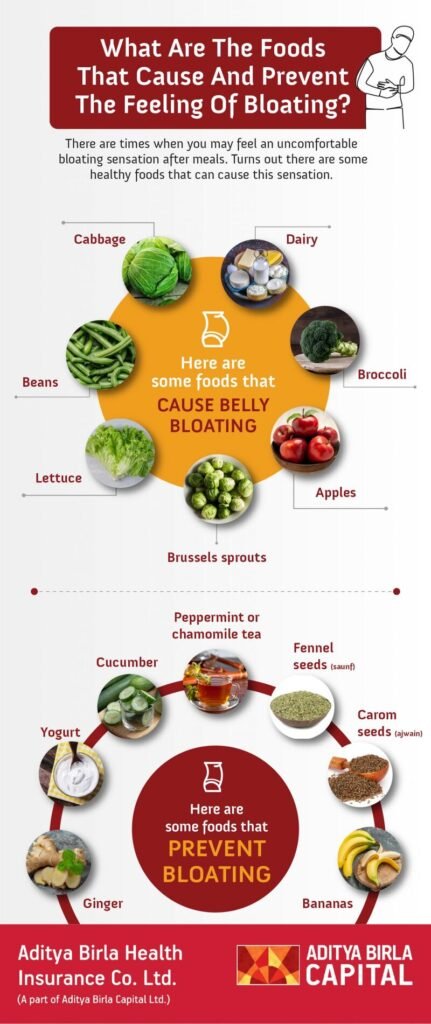
This image is property of www.adityabirlacapital.com.
High-Fiber Fruits
Fruits are generally considered a healthy addition to any diet due to their various nutritional benefits. However, some fruits can cause bloating or gas due to their high fiber content. Fiber is an essential nutrient for maintaining digestive health, but consuming too much of it can lead to uncomfortable symptoms. High-fiber fruits such as apples, pears, and berries can cause bloating and gas in some individuals, especially if eaten in large quantities or on an empty stomach. These fruits contain a type of fiber called soluble fiber, which can ferment in the gut and produce gas.
Fructose Intolerance
Another factor that can contribute to bloating or gas after consuming fruits is fructose intolerance. Fructose is a type of sugar found naturally in fruits, and some people have difficulty digesting it. When someone with fructose intolerance consumes fruits that contain high amounts of fructose, such as apples, cherries, or watermelons, they may experience bloating, gas, and even diarrhea. It is important to note that fructose intolerance is different from a fructose allergy, which is a rare condition.
Sorbitol Content
Sorbitol is a sugar alcohol naturally present in some fruits, and it can also cause bloating or gas in certain individuals. Fruits like apples, peaches, and plums are known to have relatively high sorbitol content. Sorbitol is poorly absorbed by the small intestine, and when it reaches the large intestine, it can be fermented by gut bacteria, leading to excess gas production. This can result in bloating and discomfort, especially for individuals who are sensitive to sorbitol.
Symptoms of Bloating or Gas
If you experience bloating or gas after consuming fruits, you may notice several common symptoms. These can include a feeling of fullness or tightness in the abdomen, abdominal pain or cramps, excessive gas or flatulence, and even audible stomach noises. These symptoms can range from mild to severe and may vary from person to person. Keep in mind that while bloating and gas can be uncomfortable, they are usually harmless and temporary. However, if you consistently experience severe discomfort or other concerning symptoms, it is best to consult a healthcare professional for further evaluation.
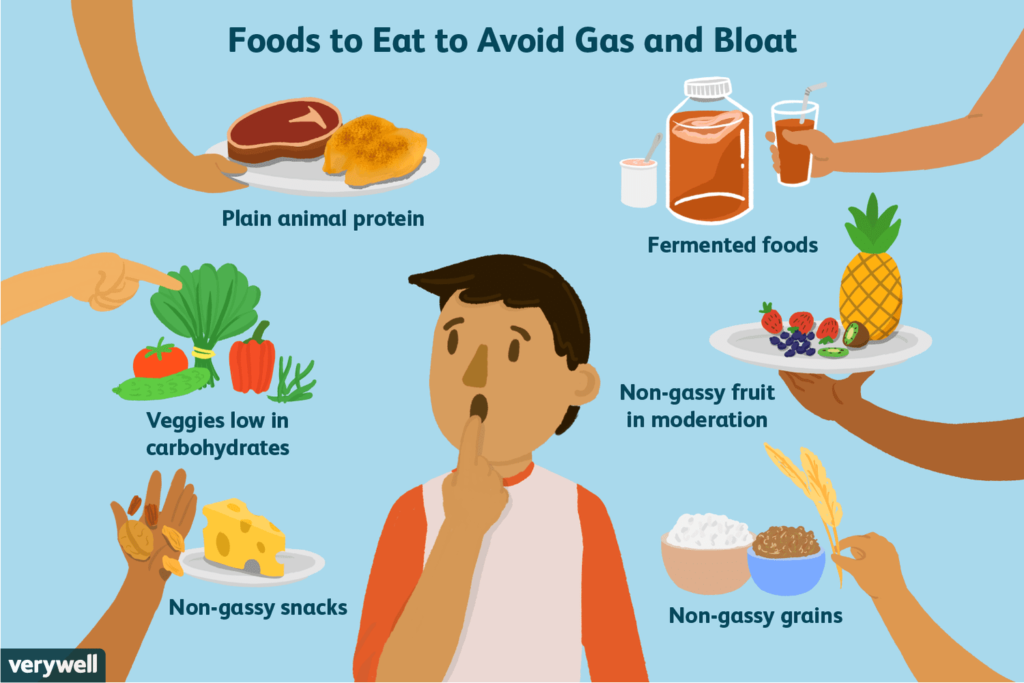
This image is property of www.verywellhealth.com.
Managing Bloating and Gas
If you find that certain fruits cause bloating or gas for you, there are a few strategies you can employ to manage these symptoms. Firstly, you can try reducing your overall intake of high-fiber fruits. Instead, opt for lower-fiber alternatives or consume smaller portions of high-fiber fruits at a time. This can help alleviate some of the bloating or gas you may experience. Additionally, eating fruits with a meal rather than on an empty stomach can also help reduce bloating.
Low-Fiber Alternatives
If high-fiber fruits consistently cause bloating or gas for you, there are plenty of low-fiber alternatives available. Some examples include bananas, melons (such as cantaloupe or honeydew), and citrus fruits like oranges or grapefruits. These fruits are lower in fiber and may be better tolerated by individuals who experience digestive discomfort from high-fiber options. It’s important to remember that everyone’s body is different, so what works for one person may not work for another. Exploring different fruits and observing personal reactions is key in finding a suitable alternative for you.
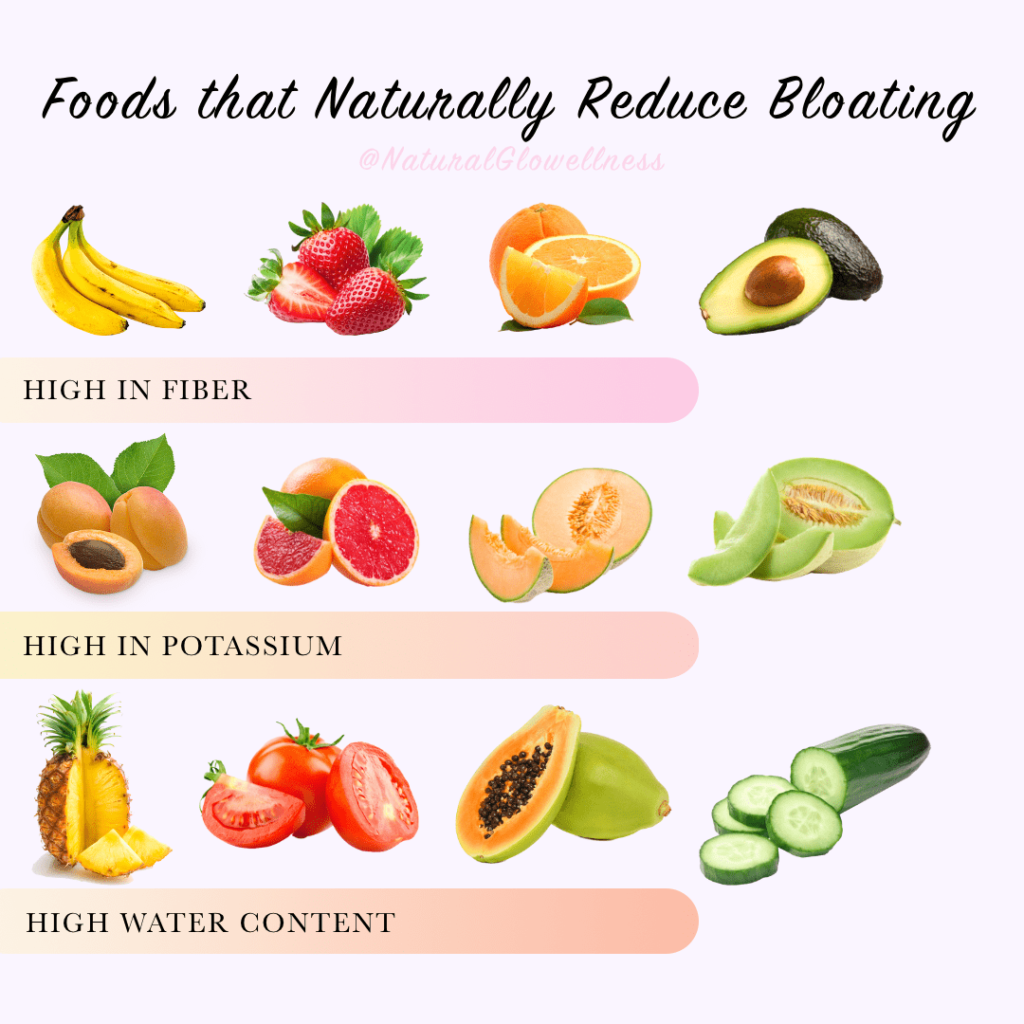
This image is property of naturalglowellness.files.wordpress.com.
Cooking Fruits to Reduce Bloating
In some cases, cooking fruits can help reduce bloating or gas associated with their consumption. The process of cooking breaks down certain fibers and makes fruits easier to digest. For example, baking apples or pears can soften their fibers, making them more tolerable for individuals with sensitive digestive systems. Similarly, stewing or poaching fruits can have a similar effect. This method is particularly helpful for individuals who enjoy the taste of certain fruits but struggle with their raw forms.
Individual Sensitivities
It is important to recognize that everyone has different tolerances and sensitivities when it comes to consuming fruits. What causes bloating or gas for one person may not have the same effect on another. It is essential to listen to your body and pay attention to how you feel after eating certain fruits. By being aware of your individual sensitivities, you can make informed choices regarding which fruits to include in your diet and how much of them to consume.
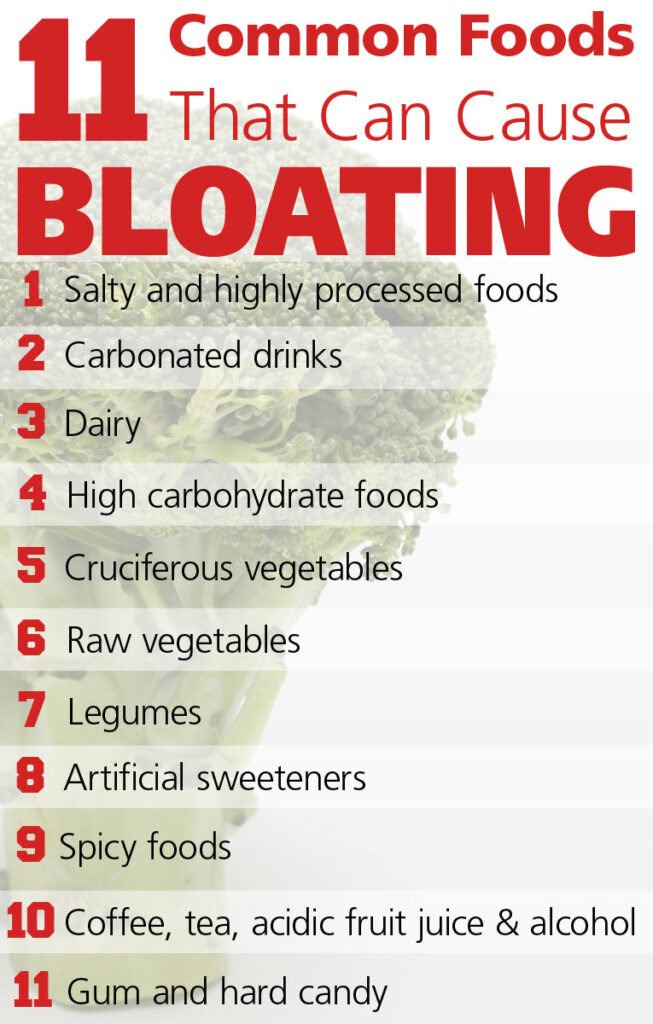
This image is property of cdn.shopify.com.
Tips for consuming fruits without bloating or gas
If you want to enjoy fruits without experiencing bloating or gas, there are a few tips you can follow. Firstly, try to eat fruits in moderation rather than consuming large quantities at once. This can help prevent the excessive fermentation of fiber in the gut that leads to gas production. Additionally, chewing fruits thoroughly can aid in digestion and reduce the risk of bloating. Lastly, incorporating fruits into a balanced meal that includes proteins, fats, and other carbohydrates can help slow down digestion and minimize bloating or gas.
Consulting a Healthcare Professional
If you consistently experience bloating or gas after consuming fruits, despite trying various strategies to manage the symptoms, it may be helpful to consult a healthcare professional. A doctor or registered dietitian can assess your individual circumstances and provide personalized recommendations. They can also help rule out any underlying medical conditions that may be contributing to your symptoms. Seeking professional guidance can ultimately help you develop a balanced and enjoyable diet that includes the fruits you love without causing discomfort.
In conclusion, while fruits are generally considered healthy, some individuals may experience bloating or gas after consuming certain types of fruits. High-fiber fruits, fructose intolerance, and high sorbitol content in some fruits can contribute to these symptoms. However, by managing your fruit intake, exploring low-fiber alternatives, cooking fruits, and being mindful of individual sensitivities, you can still enjoy fruits while minimizing bloating or gas. If symptoms persist or worsen, consulting a healthcare professional is advised for proper evaluation and guidance. Remember to listen to your body and make choices that promote your digestive comfort and overall well-being.
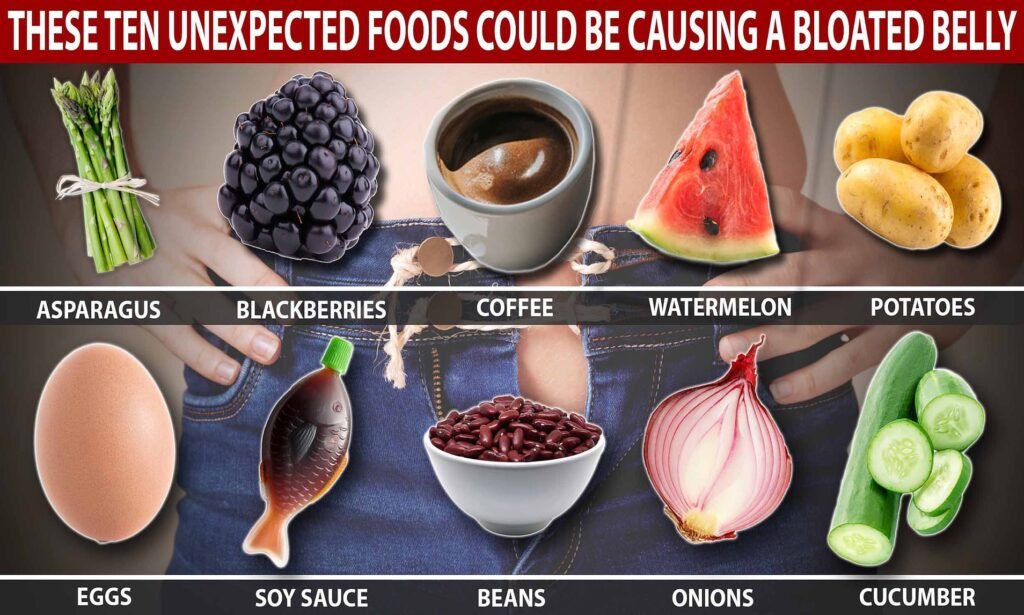
This image is property of i.dailymail.co.uk.

